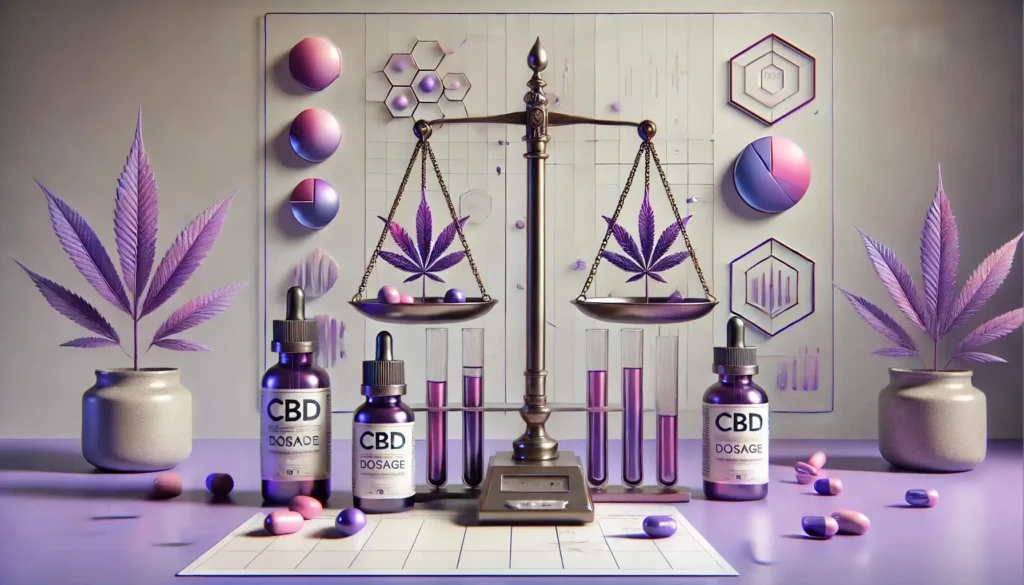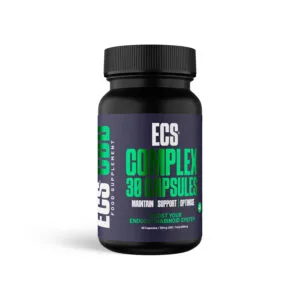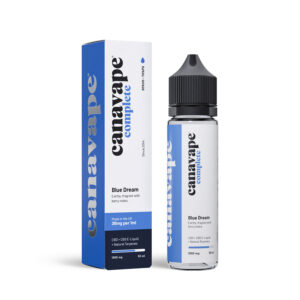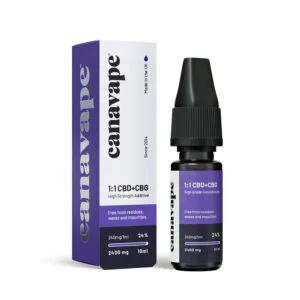
Navigating the world of CBD can be daunting, especially when it comes to determining the right dosage for your needs. With the rise in popularity of CBD products, such as vaping oils and capsules, finding your perfect dosage has become an essential step for maximizing benefits. Whether you’re new to CBD or looking to refine your routine, understanding the strengths and proper use of these products is crucial. In this guide, we will break down practical strategies to help you confidently determine the ideal CBD dosage tailored to your personal lifestyle and health goals. Let’s dive into a clearer understanding of how to make CBD work for you.
CBD, or cannabidiol, is a natural compound found in the cannabis plant. Unlike THC, another well-known compound from the same plant, CBD does not have psychoactive effects. This means it won’t make you feel “high.” Instead, CBD is celebrated for its potential health benefits, including reducing anxiety, alleviating pain, and improving sleep. It’s often used in various forms such as oils, capsules, and vaping products to cater to different preferences and needs. Understanding what CBD is and how it interacts with the body can help you make informed decisions about its use. It mainly works by interacting with the endocannabinoid system, which plays a role in regulating functions like mood, pain, and sleep. This interaction makes CBD a versatile option for many looking to enhance their well-being.
CBD interacts with the body’s endocannabinoid system (ECS), a complex network of receptors and neurotransmitters that helps maintain balance in the body. The ECS plays a crucial role in regulating a variety of physiological processes, including mood, pain perception, appetite, and immune response. CBD influences the ECS by interacting with its receptors, primarily CB1 and CB2. While CB1 receptors are mainly found in the brain and central nervous system, CB2 receptors are more common in peripheral organs and the immune system. Unlike THC, CBD does not bind directly to these receptors. Instead, it modifies the receptor’s ability to bind to cannabinoids, enhancing the body’s natural production of endocannabinoids. This modulation can lead to various effects, such as reduced anxiety or improved pain management, making CBD a versatile option for those seeking natural therapeutic options.
CBD comes in various formats, each offering unique advantages. Vaping CBD involves inhaling vaporized CBD oil through a vape pen or e-cigarette. This method allows CBD to enter the bloodstream quickly, providing fast relief from symptoms like anxiety or pain. It is ideal for those seeking immediate effects. However, vaping may not be suitable for everyone, especially those with respiratory issues. On the other hand, CBD capsules offer a convenient and discreet way to consume CBD. They provide a pre-measured dose, making it easier to track your intake. Capsules take longer to take effect since they must pass through the digestive system, but their effects can be longer-lasting. This format is excellent for individuals seeking consistent, prolonged relief and for those who prefer not to inhale substances. Understanding these differences can help you choose the method that best fits your lifestyle and health needs.

Several factors influence the ideal CBD dosage for an individual. One key factor is body weight, as it can affect how CBD is metabolized. Generally, those with a higher body weight may require larger doses to experience the same effects as someone lighter. Another important factor is the severity of the condition being treated. More severe symptoms might necessitate a higher dosage for effective relief. Personal body chemistry, including metabolism and the presence of other medications, can also impact how CBD affects you. It’s crucial to consider any potential interactions with other drugs you may be taking. Additionally, your tolerance to CBD, which can develop over time, might require dosage adjustments. Starting with a low dose and gradually increasing it while monitoring your body’s response is a practical approach. This method allows you to find the most effective dosage tailored to your unique needs.
Calculating your initial CBD dose involves considering several factors to tailor the experience to your needs. Start by assessing your body weight, as a general guideline suggests 1-6 milligrams of CBD for every 10 pounds of body weight. For example, someone weighing 150 pounds might begin with 15-25 milligrams daily. This is a very low end which it’s advisable to start at, especially if you’re new to CBD. Consider the severity of your symptoms next. If you’re dealing with mild discomfort or stress, a lower dose may suffice. Conversely, more intense symptoms might require a higher starting dose. Always factor in your body’s chemistry and any other medications you’re taking, as these can influence how CBD works for you. Begin with a low dose and gradually increase it, monitoring how your body responds over time. This method ensures you find the most effective and comfortable dosage for your needs.
Starting slow with CBD is crucial for several reasons. Beginning with a low dose allows you to monitor how your body reacts without overwhelming your system. This cautious approach helps in identifying the minimal effective dose where benefits are experienced without adverse effects. Gradually increasing the dosage ensures that your body can adjust to CBD and reduces the risk of unwanted side effects, such as drowsiness or digestive discomfort. Moreover, starting slow gives you the opportunity to observe the nuances of how CBD interacts with your body chemistry, helping you fine-tune the dosage to best meet your health goals. This method is especially important for those new to CBD, as individual responses can vary widely. By taking this gradual approach, you build a better understanding of how CBD affects you, leading to more informed decisions about modifying your dosage as needed over time.
Recognizing when to adjust your CBD dosage is essential for achieving optimal benefits. One clear sign is the persistence of your symptoms. If you continue to experience discomfort, anxiety, or other issues despite regular CBD use, it might be time to increase your dose. Conversely, if you notice adverse effects like excessive drowsiness, headaches, or stomach upset, a lower dose may be more appropriate. Another indicator is the duration of the effect. If the relief provided by your current dosage wears off too quickly, a slight increase can help maintain stability throughout the day. Pay attention to how you feel both physically and mentally; subtle changes in mood or energy levels can signal the need for dosage adjustments. Always make changes gradually and monitor your body’s response to avoid overwhelming your system. Consulting with a healthcare provider can also provide guidance tailored to your specific needs.
Increasing your CBD dosage safely requires a gradual and measured approach. Start by making small increments, typically 1-5 milligrams at a time, depending on your current dose and how your body has been reacting. Allow your body ample time to adjust to each new dosage level; a period of one to two weeks is generally recommended before making further increases. This gradual method helps prevent potential side effects and allows you to precisely gauge the effectiveness of the new dose. Keep a journal to track your symptoms, noting any changes in their intensity and frequency. This record can be invaluable for identifying the optimal dosage. Additionally, it’s advisable to consult with a healthcare provider, especially if you are taking other medications or have underlying health conditions. They can offer professional insights and ensure that your CBD regimen is both safe and effective for your unique circumstances.

Consulting a professional is crucial when adjusting your CBD dosage, especially if you encounter persistent or severe symptoms that do not improve with self-managed adjustments. If you’re experiencing unexpected side effects or if your symptoms worsen, a healthcare provider can offer personalized advice and adjustments. It’s particularly important to seek guidance if you’re taking other medications, as CBD can interact with certain prescriptions, affecting their efficacy or causing adverse reactions. Additionally, if you have underlying health conditions, such as liver disease or a compromised immune system, professional input is vital to ensure safe and effective CBD use. A healthcare provider can help tailor your dosage to suit your specific health profile and goals, ensuring that your CBD regimen is both safe and effective. Involving a professional ensures a balanced approach, helping you avoid potential pitfalls and maximize the benefits of CBD for your health and wellness.
Vaping CBD offers several advantages, making it a popular choice for those seeking swift relief. One of the primary benefits is its rapid onset time. When you inhale CBD vapor, it enters the bloodstream through the lungs almost immediately, providing quick effects. This makes vaping an excellent option for managing sudden symptoms, such as acute anxiety or pain flare-ups. Additionally, vaping allows for easy dosage control. Users can take small puffs and adjust the amount of CBD consumed based on how they feel, offering a customizable approach to dosing. The act of vaping itself is also discreet and convenient, allowing for use in various settings without drawing undue attention. Furthermore, vaping can be a more pleasant experience for those who enjoy flavored CBD products, as many vape oils come in a variety of flavors. These benefits make vaping a versatile and appealing method for integrating CBD into one’s wellness routine.
Adjusting your CBD vaping dosage requires a mindful approach to ensure effectiveness and safety. Start by assessing the concentration of CBD in your vape oil, as this will guide how much you should inhale. Begin with a small number of puffs and take note of how you feel after about 10 to 15 minutes, as vaping delivers CBD rapidly. If you do not experience the desired effects, gradually increase the number of puffs in small increments. Keep a log of your vaping sessions, including the number of puffs and the effects felt, to help determine your optimal dose over time. Pay attention to your body’s reactions; if you experience any side effects such as dizziness or nausea, reduce your intake. It’s also important to stay hydrated, as vaping can sometimes lead to dry mouth. By following these tips, you can find a balanced dosage that meets your needs effectively.

While vaping CBD offers several benefits, it’s important to be aware of potential risks and considerations. One concern is the quality of the vape oil; not all products are created equal. Low-quality CBD oils may contain harmful additives or contaminants, so it’s crucial to choose products that are third-party tested for purity and safety. Additionally, vaping itself can pose risks to lung health, especially for individuals with pre-existing respiratory conditions. It’s advisable to consult a healthcare provider if you have concerns about the impact of vaping on your health. Over time, frequent vaping can also lead to tolerance, requiring higher doses to achieve the same effects, which may increase the cost and potential side effects. Being aware of these risks allows you to make informed decisions and take precautions, such as limiting usage frequency and selecting reputable CBD brands, ensuring a safer vaping experience.
CBD capsules offer several advantages, making them a preferred choice for many users seeking convenience and consistency. One of the primary benefits is the ease of use; capsules provide a pre-measured, consistent dose of CBD, eliminating the need for guesswork associated with other forms like oils or vaping. This makes it simple to incorporate into your daily routine, similar to taking a vitamin or supplement. Capsules are also discreet, making them ideal for those who prefer not to draw attention to their CBD use in public settings. Additionally, they are flavorless and odorless, which can be advantageous for individuals who dislike the taste or smell of CBD oil. The effects of capsules are generally more prolonged, as they are absorbed through the digestive system, providing sustained relief throughout the day. These attributes make CBD capsules a reliable and convenient option for integrating CBD into one’s wellness regimen.
Determining the correct dosage for CBD capsules involves a straightforward process, given their pre-measured nature. Most capsules come with specific CBD concentrations, typically ranging from 10 to 30 milligrams per capsule. When starting out, it’s advisable to begin with a lower dose, such as a 10-milligram capsule, to assess how your body responds. If you find that the initial dose does not provide adequate relief, gradually increase the dosage. This might mean taking an additional capsule or opting for one with a higher concentration. It’s important to allow time for absorption, as capsules can take one to two hours to take effect due to their passage through the digestive system. Keeping track of your dosage and the effects can help fine-tune your regimen. Additionally, consulting with a healthcare provider can provide personalized guidance, ensuring that your dosage aligns with your health needs and goals.
Monitoring the effects of CBD capsules is crucial for optimizing their benefits. Begin by keeping a detailed journal of your experiences, noting the time of dosage, the amount taken, and the effects felt. This log will help identify patterns over time, such as how long it takes for relief to begin or how long the effects last. Pay attention to any changes in symptoms or the emergence of side effects, as these can indicate the need for dosage adjustments. If you notice persistent symptoms or insufficient relief, consider gradually increasing your dosage while continuing to monitor the effects. Conversely, if side effects occur, reducing the dosage may be necessary. Regularly reviewing your journal entries will provide a clearer picture of how CBD capsules are impacting your wellness goals. If uncertainty persists, consulting with a healthcare professional can offer additional insights and ensure that your CBD regimen remains safe and effective.